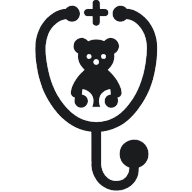Welcome to our comprehensive guide on childhood immunization schedules. This blog post aims to provide you with a detailed understanding of the importance of immunization, the recommended schedules, and how to manage them effectively. We'll delve into the world of vaccines, their role in safeguarding children's health, and the significance of adhering to the prescribed timelines.
The Importance of Childhood Immunization
Immunization plays a crucial role in protecting children from harmful diseases. Vaccines work by preparing the immune system to fight off infections. They introduce a weakened or inactivated form of the disease-causing germ to the body, which triggers the immune system to produce antibodies. These antibodies remain in the body, ready to fight off the actual disease if it ever tries to invade.
The World Health Organization (WHO) and the Centers for Disease Control and Prevention (CDC) strongly advocate for childhood immunization. They argue that vaccines not only protect the individual child but also contribute to herd immunity. Herd immunity occurs when a significant portion of the community is immunized against a contagious disease, reducing its spread and protecting those who cannot be vaccinated due to medical reasons.
Despite the proven benefits of vaccines, some parents hesitate to vaccinate their children due to misconceptions and fears. It's essential to understand that vaccines undergo rigorous testing and monitoring for safety and efficacy before they are approved for use. The benefits of immunization far outweigh the risks, making it a vital part of public health.
Understanding the Childhood Immunization Schedule
The childhood immunization schedule is a timeline recommended by health organizations for administering vaccines. It's designed to provide immunity to children at the right time, before they are likely to be exposed to potentially life-threatening diseases.
The schedule begins at birth and continues through adolescence. It includes vaccines for diseases such as Hepatitis B, Rotavirus, Diphtheria, Tetanus, Pertussis, Haemophilus influenzae type b, Pneumococcal disease, Polio, Influenza, Measles, Mumps, Rubella, Varicella, Hepatitis A, Meningococcal disease, and Human Papillomavirus.
Each vaccine is given at a specific age and often requires multiple doses for full protection. The spacing between doses is also crucial as it allows the immune system to respond effectively. Missing a dose or delaying vaccination can leave a child vulnerable to disease.
Managing the Immunization Schedule
Managing the childhood immunization schedule can seem overwhelming for parents, but it's manageable with the right tools and information. Pediatricians play a vital role in guiding parents through the schedule. They provide reminders for upcoming vaccinations and address any concerns parents may have.
In addition, many health organizations offer resources to help parents keep track of their child's immunization schedule. These include printable immunization schedules, online trackers, and smartphone apps. Parents can use these tools to record each vaccine their child receives and see what's coming up next.
It's also important for parents to keep a personal record of their child's vaccinations. This record can be helpful when enrolling a child in school or daycare, traveling, or changing healthcare providers.
Addressing Common Concerns about Vaccines
Parents often have concerns about vaccines, which can stem from misinformation or misunderstanding. One common concern is the fear that vaccines can cause the diseases they're designed to prevent. However, most vaccines contain only a dead or weakened form of the disease-causing germ and cannot cause the disease.
Another concern is the number of vaccines given in the childhood immunization schedule. Some parents worry that multiple vaccines can overload a child's immune system. But research shows that children's immune systems can handle many more antigens (substances that trigger an immune response) than they encounter through vaccines.
Parents may also worry about side effects from vaccines. While vaccines can cause mild side effects, such as a low-grade fever or soreness at the injection site, serious side effects are rare. The benefits of preventing serious illness far outweigh the potential risks of vaccination.
The Role of Schools and Daycares in Immunization
Schools and daycares play a significant role in ensuring children are up-to-date on their vaccinations. Most require proof of immunization upon enrollment to protect the health of all students and staff.
These institutions also help maintain herd immunity within the community. By requiring immunization, they reduce the risk of disease outbreaks that can be particularly dangerous for children who cannot be vaccinated due to medical conditions.
Schools and daycares often provide resources to parents about the importance of vaccines and the recommended immunization schedule. They may also host immunization clinics or partner with local health departments to provide vaccines.
The Future of Childhood Immunization
The field of immunization is continually evolving, with research and development efforts aimed at improving vaccine efficacy and safety. New vaccines are being developed to protect against additional diseases, and existing vaccines are being refined for better protection.
In the future, we may see more personalized immunization schedules based on a child's health status, genetic profile, and environmental factors. Advances in technology may also lead to new ways of delivering vaccines, such as needle-free methods.
Despite these advancements, the core principles of childhood immunization remain the same. Vaccines are a safe and effective way to protect children from serious diseases, and following the recommended immunization schedule is the best way to ensure this protection.
Wrapping Up the Journey through Childhood Immunization Schedules
Navigating the path of childhood immunization schedules can be a daunting task for parents. However, with the right information and resources, it's a manageable journey. Remember, vaccines play a crucial role in protecting children's health and contributing to public health. By adhering to the recommended schedule, you're not only safeguarding your child but also contributing to a healthier community.

